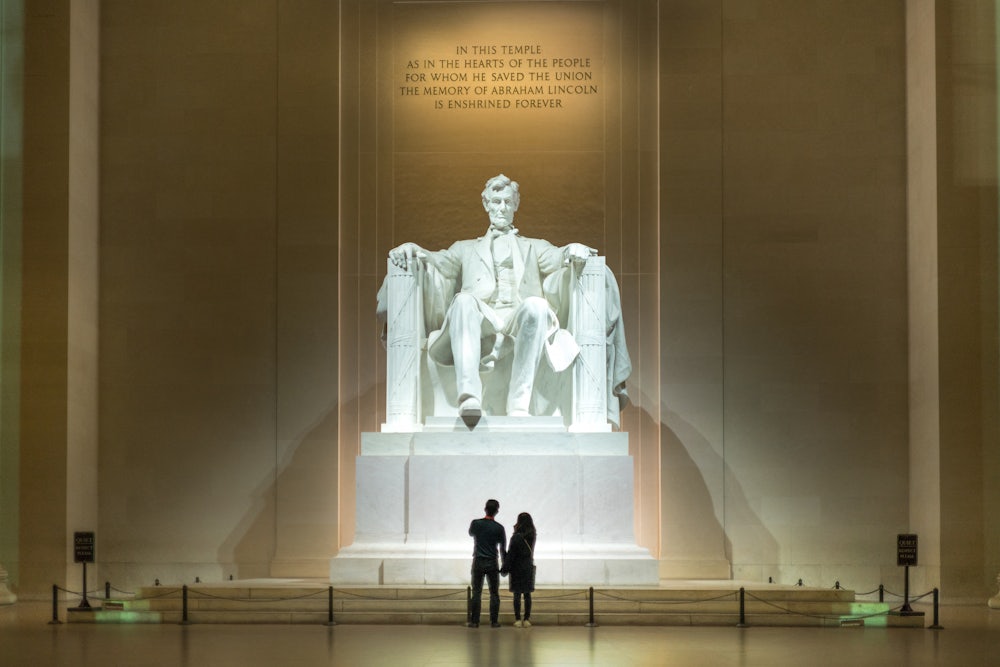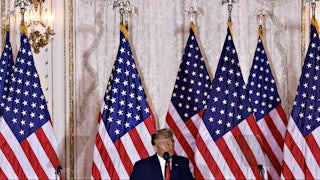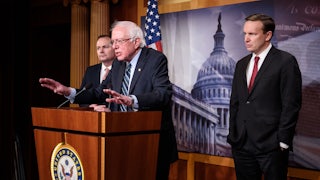Abolishing the Electoral College, ending partisan gerrymandering, and instituting open primaries, ranked-choice voting, and campaign finance reform; the list of ideas for repairing our diminished democracy is quite extensive. American philanthropists, democracy experts, think tanks, and foundations have dedicated billions of dollars and countless hours to developing and implementing these concepts.
These efforts are both warranted and worthwhile, as our country has witnessed in recent years the type of political violence and instability more typical of immature democracies throughout the world: an attack on the U.S. Capitol attempting to block a constitutionally prescribed proceeding, a scheme to have states certify fake electors, and refusals by many elected officials to accept legitimate election results vetted by multiple courts, among other less prominent but still debilitating aggressions against our social contract.
I am involved with two of the organizations working on democracy reforms: Issue One and Unite America. For me, strengthening our institutions of government is deeply personal. I was born in the United States because my family lost its country to political violence and dictatorship in 1959, when Fidel Castro and his fellow revolutionaries took the island of Cuba by force. Political persecution and executions quickly ensued. Among the countless victims was my grandfather, who was sentenced to 30 years in political prison for his opposition to the dictatorship. After developing Parkinson’s, he was released 12 years into his sentence because the communists seemingly had no interest in caring for sick prisoners. My grandfather lived out the rest of his ruined life in exile, never again being able to set foot in his homeland. Today, almost 63 years later, Cuba continues to repress it people. According to Human Rights Watch, the government suppresses free speech and dissent with tactics including “beatings, public shaming, travel restrictions, short-term detention, fines, online harassment, surveillance, and termination of employment.” A decree was issued in 2019 that has frequently been used to silence or intimidate online journalists. Cuba shows us that freedom is fragile and difficult to recover. Our family knows.
So, yes, my commitment to democracy reform is strong and unwavering, and I am deeply grateful to all who have built and funded this essential movement in the United States. However, the truth is that the structural solutions many of us are pursuing will take a long time to realize. Some of them require amending the Constitution or winning statewide referenda against one of the most powerful duopolies in the world—America’s two political parties. I believe we can win, but it may take a long time, and given the rate of institutional erosion we have suffered in recent years, time seems short.
There is a solution that is more expeditious than structural reforms and that can actually help accelerate said reforms: a transformational leader. Perhaps the greatest in our country’s history was Abraham Lincoln, who challenged Americans to think beyond their personal and local interests for the good of the country. Without warning, he emerged to save the republic.
Transformational leaders are rare, but they are real. It was the historian James MacGregor Burns who, in the late 1970s, developed the notion of “transformational” versus “transactional” leadership. The latter leaders narrowly try to exploit existing paradigms without imagining what else might be possible. We have plenty of those in our politics today, and they are driving the republic into the ground by exploiting the American people. Rather than seeking the greater good, they reduce civic life to the lowest common denominators—anger, resentment, and grievance.
Somewhere in our vast land today there is surely a next-generation politician, a young man or woman, who will serve with honesty, decency, integrity, and courage. He or she will connect viscerally with the American people but will use that connection to inspire, not to inflame. This leader will become president and usher in the political renaissance our country so desperately needs.
He or she will serve as the post-partisan president that many in our country have been hoping for. This transformational patriot will reject the divide-and-conquer strategies adopted by heads of both parties. They will not pose false choices or feed class warfare. And they will give voice to the supermajority of Americans who are disillusioned by our politicians and who, to varying degrees, dislike both parties.
This person will convince Americans that we can simultaneously grow our economy and protect our environment. That we can support law enforcement officers while demanding that they treat all people with fairness. That our government can be fiscally responsible while funding important national priorities. That we can welcome immigrants and refugees while requiring that they enter our country in a legal and orderly manner. That capitalism can indeed have a conscience, and that we can preserve our culture, traditions, and language while treating those who stand out with dignity and respect.
Most important, our once-in-a-generation leader will remind us that politics is neither sport nor a zero-sum game. That society need not be consumed nor intoxicated by politics. This leader will be a Gen Xer or millennial, and he or she will be a member of one of the two major parties. Once elected, she or he will build bipartisan coalitions in Congress and shun members of their own party who attempt to revert to the small, destructive politics that rule our times.
If such a leader emerges, the United States of America will again become the leading democracy in the world, well before the year 2050. Of course, some credit will go to the many patriotic Americans who today are working tirelessly and generously to harden our democratic infrastructure, but no factor will be greater than the transformational leadership of a young American who today observes in disbelief as so many selfishly manipulate and destroy America’s fabric for the sake of power and personal gain.
As a result, our nation will cease to be resentful and afraid. We will be confident and compassionate in our actions at home and abroad. The charlatans of the past will be ghosts in our rearview mirrors. The shining city on a hill will be restored. Nothing will be perfect, but all will be better.






